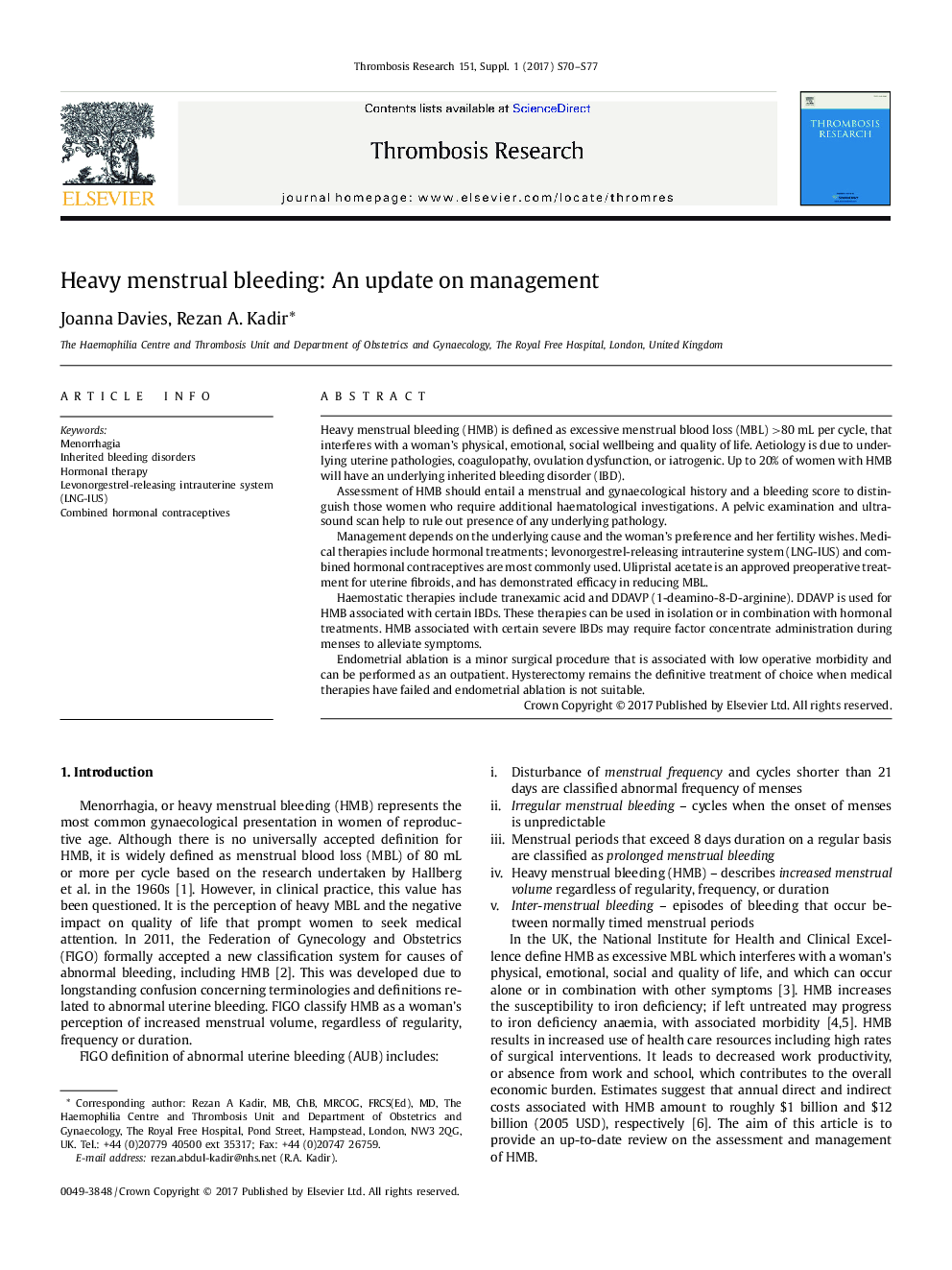| Article ID | Journal | Published Year | Pages | File Type |
|---|---|---|---|---|
| 5622077 | Thrombosis Research | 2017 | 8 Pages |
ABSTRACTHeavy menstrual bleeding (HMB) is defined as excessive menstrual blood loss (MBL) >Â 80 mL per cycle, that interferes with a woman's physical, emotional, social wellbeing and quality of life. Aetiology is due to underlying uterine pathologies, coagulopathy, ovulation dysfunction, or iatrogenic. Up to 20% of women with HMB will have an underlying inherited bleeding disorder (IBD).Assessment of HMB should entail a menstrual and gynaecological history and a bleeding score to distinguish those women who require additional haematological investigations. A pelvic examination and ultrasound scan help to rule out presence of any underlying pathology.Management depends on the underlying cause and the woman's preference and her fertility wishes. Medical therapies include hormonal treatments; levonorgestrel-releasing intrauterine system (LNG-IUS) and combined hormonal contraceptives are most commonly used. Ulipristal acetate is an approved preoperative treatment for uterine fibroids, and has demonstrated efficacy in reducing MBL.Haemostatic therapies include tranexamic acid and DDAVP (1-deamino-8-D-arginine). DDAVP is used for HMB associated with certain IBDs. These therapies can be used in isolation or in combination with hormonal treatments. HMB associated with certain severe IBDs may require factor concentrate administration during menses to alleviate symptoms.Endometrial ablation is a minor surgical procedure that is associated with low operative morbidity and can be performed as an outpatient. Hysterectomy remains the definitive treatment of choice when medical therapies have failed and endometrial ablation is not suitable.
